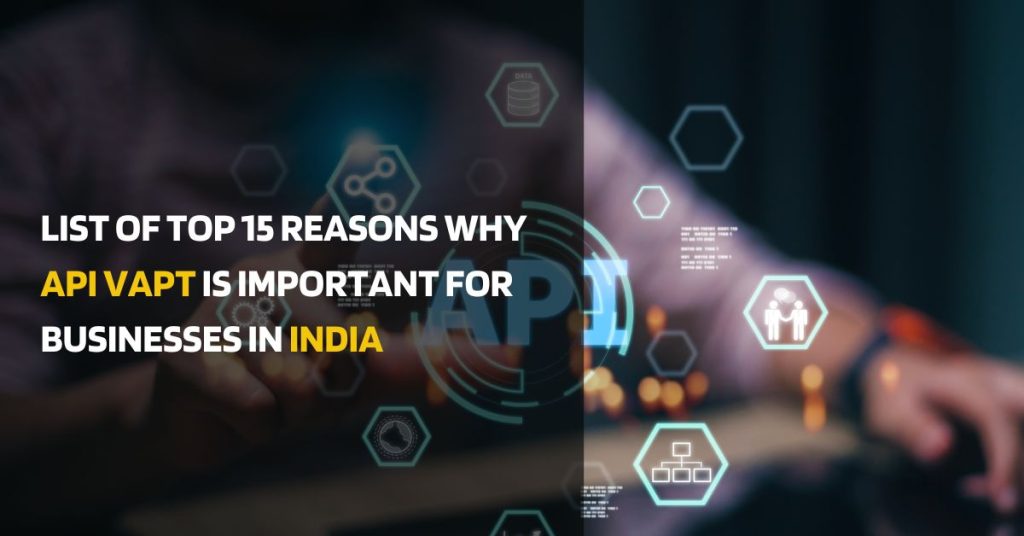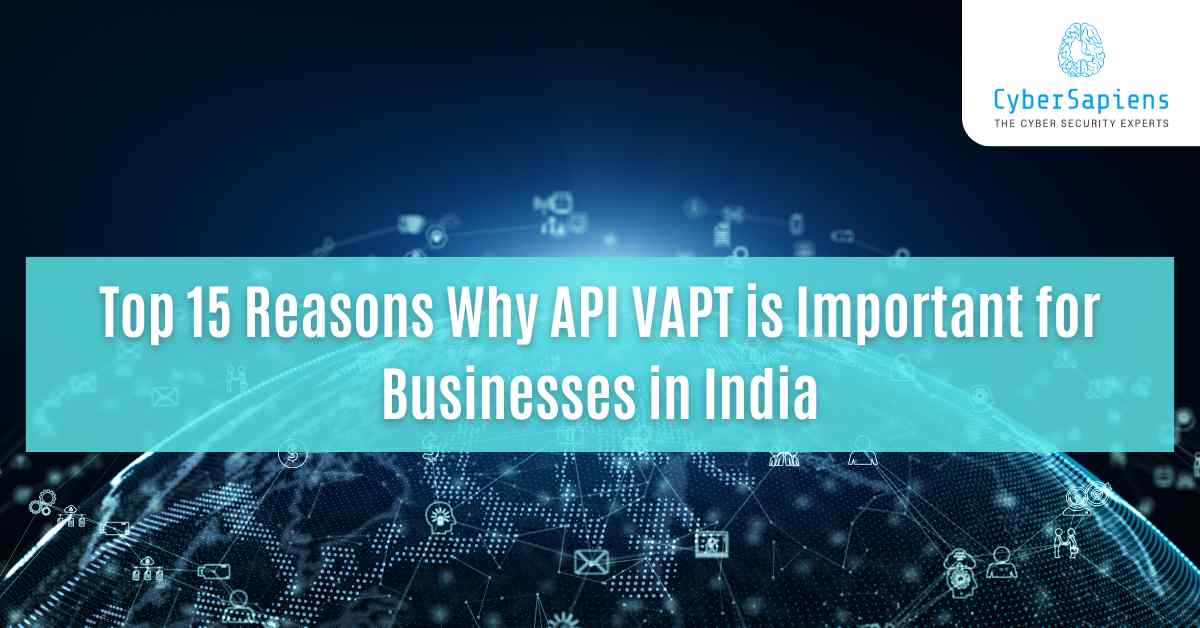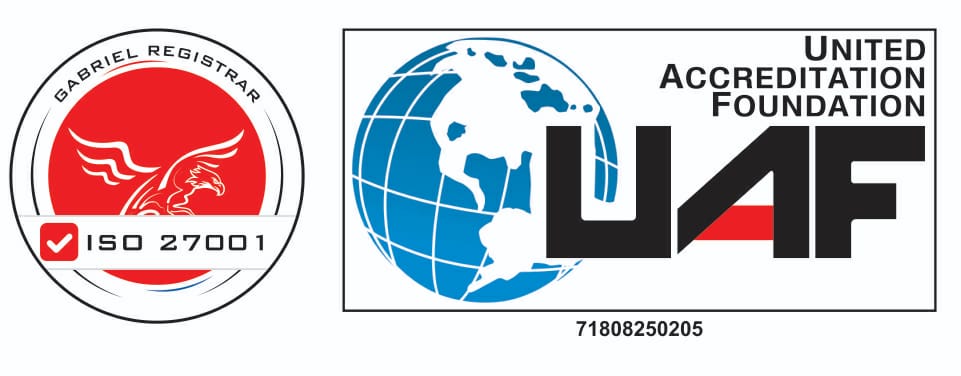In today’s digital era, businesses in India are rapidly shifting towards online platforms to cater to their customers, streamline operations, and increase revenue.
However, with the increasing dependence on digital technologies, the risk of cyber threats and attacks has also escalated.
Application Programming Interfaces (APIs) have become a crucial component of modern web applications, allowing different systems to communicate with each other seamlessly. But, APIs are also vulnerable to security breaches and attacks.
This is where API Vulnerability Assessment and Penetration Testing (VAPT) comes into play.
This article delves into the topic of Top 15 Reasons Why API VAPT is Important for Businesses in India.
What is API VAPT?
API VAPT is an API security testing methodology that helps identify vulnerabilities and weaknesses in APIs.
It involves simulating real-world attacks on APIs to detect potential security risks and vulnerabilities, such as SQL injection, cross-site scripting (XSS), and cross-site request forgery (CSRF).
The primary objective of API VAPT is to evaluate the security posture of APIs and provide recommendations for remediation and mitigation.
List of Top 15 Reasons Why API VAPT is Important for Businesses in India

Here is the list of the Top 15 Reasons Why API VAPT is Important for Businesses in India:
1. Protection against Cyber Attacks
API VAPT assists companies in the Indian market in ensuring their safety from cyber criminals who can cause severe financial and image losses.
2. Compliance with Regulations
Some of the rules that were put into practice by India are the Information Technology Act of 2000 and the regulation rules by RBI on cyber security.
API VAPT assists organizations in these regulations’ compliance and escapes from penalties.
3. Identification of Vulnerabilities
API VAPT is useful in determining some of the weaknesses of APIs to hackers to access secure information.

4. Data Protection
The API VAPT guarantees data welfare from unlawful access and this is of great importance to companies in India dealing with customer data.
5. Brand Reputation
Another detrimental effect of a cyber attack is that it poses the risk of jeopardizing the company’s reputation and customer loyalty.
API VAPT, also, assists in preventing such attacks and the consequent damage to the brand image.
6. Business Continuity
API VAPT also makes certain that Indian firms can run their operations, unhampered by the effects of a cyber attack.
7. Customer Trust
API VAPT creates customer trust by providing the client with confidence that their information is safe from cybercriminals.
8. Cost Savings
API VAPT can assist the company in India to cut costs by availing a budget for correcting the flaws that are considered threats to the company rather than suffering losses due to cyber-attacks.
9. Competitive Advantage
API VAPT in India can help business entities stand out from their competitors, who may not be performing vulnerability assessments of their APIs.
10. Reduced Risk of Data Breaches
API VAPT is important in mitigating vulnerabilities since data breaches are costly issues on both the financial and the organizations’ reputations.
11. Improved Security Posture
The API VAPT results in enhanced cybersecurity awareness for businesses with a focus on India and thus aids in dealing with cybersecurity threats.
12. Increased Customer Confidence
API VAPT can also make customers trust that their critical data is safe with the business, and hence more business hence high customer retention.
13. Better Incident Response
API VAPT helps businesses in India develop a better incident response plan, enabling them to respond quickly and effectively to cyber attacks.
14. Improved Compliance with Industry Standards
API VAPT helps businesses in India comply with industry standards, such as the Payment Card Industry Data Security Standard (PCI DSS).
15. Proactive Security Measures
API VAPT enables businesses in India to take proactive security measures, rather than reactive measures, which can help prevent cyber attacks and reduce the risk of data breaches.
Summary
Here is the summary for “Top 15 Reasons Why API VAPT is Important for Businesses in India“:
- Protection against Cyber Attacks
- Compliance with Regulations
- Identification of Vulnerabilities
- Data Protection
- Brand Reputation
- Business Continuity
- Customer Trust
- Cost Savings
- Competitive Advantage
- Reduced Risk of Data Breaches
- Improved Security Posture
- Increased Customer Confidence
- Better Incident Response
- Improved Compliance with Industry Standards
- Proactive Security Measures
Conclusion
API VAPT is an essential security testing approach that emphasizes the significance of API security over the weaknesses faced by businesses in India.
This way prioritizing API VAPT, businesses in India can shield themselves against cyber threats, achieve compliance, and gain customers.
The 15 reasons mentioned in this article justify the API VAPT need for businesses in India ranging from defending against cyber-crises to measures against them.
FAQs: Top 15 Reasons Why API VAPT is Important for Businesses in India
1. Why is API VAPT necessary for businesses in India?
Ans: API VAPT is necessary for businesses in India to protect sensitive data, comply with regulatory requirements, prevent financial losses, and protect brand reputation.
2. How often should API VAPT be conducted?
Ans: API VAPT should be conducted regularly, ideally every 3-6 months, to ensure that new vulnerabilities are identified and addressed promptly.
3. What are the benefits of API VAPT?
Ans: The benefits of API VAPT include improved incident response, identification of unknown vulnerabilities, cost savings, and improved API design.
4. What is the difference between vulnerability assessment and penetration testing?
Ans: Vulnerability assessment is a scanning process that identifies potential vulnerabilities in an API, while penetration testing is a simulated attack on the API to identify weaknesses that could be exploited by attackers.
5. How does API VAPT help comply with regulatory requirements?
Ans: API VAPT helps businesses comply with regulatory requirements, such as RBI and SEBI guidelines, by identifying vulnerabilities and weaknesses that could lead to security breaches.
6. What are some common vulnerabilities identified through API VAPT?
Ans: Some common vulnerabilities identified through API VAPT include SQL injection, cross-site scripting (XSS), and cross-site request forgery (CSRF).
7. How long does an API VAPT typically take?
Ans: The duration of an API VAPT typically varies from a few days to several weeks, depending on the complexity of the API and the scope of the test.
8. Can API VAPT be done internally or should it be outsourced to a third-party provider?
Ans: API VAPT can be done internally or outsourced to a third-party provider. However, outsourcing to a reputable provider can provide an objective perspective and access to specialized expertise.
9. What happens after the API VAPT is completed?
Ans: After the API VAPT is completed, the vulnerabilities identified during the test are reported, and recommendations are provided for remediation. The business can then address the vulnerabilities and implement security measures to prevent future breaches.












